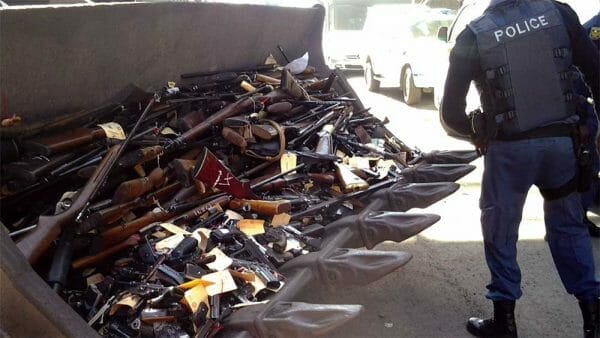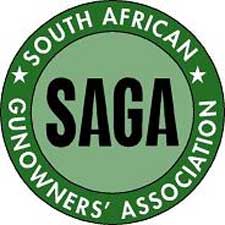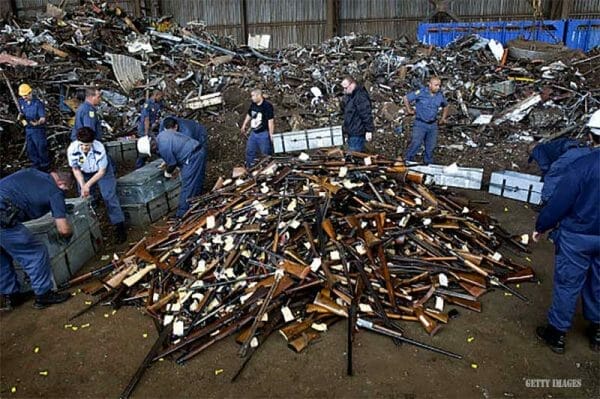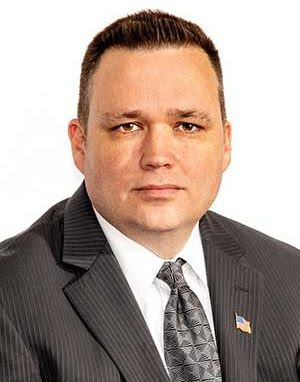By John Crump

South Africa –-(Ammoland.com)- Gun rights are under attack in the United States, but assaults on gun rights aren’t just an American problem. Where the Americans Constitution affords Americans the protection of the Second Amendment, other people from countries do not have this luxury.
In 2000 the South African government passed a law called a firearm Control Act of 2000. Two sections of this law were of grave concern to the gun owners of South Africa. Up until this time a gun owners license was valid for life under the Arms and Ammunition Act of 1969. Under the new law, the licensed gun owners had to renew their license every five years.
Under section 24 of the law, gun owners must renew their license within 90 days of the expiration date. If gun owners did not renew their so-called “white license” within the 90-day time frame, then the license would be considered canceled. This stipulation would mean anyone who did not renew their license within 90 days of their license’s renewal date would be in possession of an illegal firearm.
Section 28 of the Firearms Control Act is even more troubling. It stipulates that if gun owners do not renew their firearms license in time and their license is canceled, then they must dispose of their guns or forfeit them to the state. Firearms owners would have 60 days to comply with the confiscation order of their firearms by the state or turn them over to a licensed dealer to be disposed of by the dealer.
North Gauteng High Court judge Ronel Tolmay ruled that the law was unconstitutional in 2017. The South African government appealed this ruling to the South African Constitutional Court. This court is the South African equivalent to the United States Supreme Court.
The South African Constitutional Court found that the law was constitutional under the current South African Constitution.
This ruling means around 400,000 South Africans are in violation of the law and will have to turn over their firearms to the nearest police station for destruction.
 South Africa is not afforded the same protection as Americans under the Second Amendment.
South Africa is not afforded the same protection as Americans under the Second Amendment.
I had a chance to speak with John Welch President of the South African Gun Owners Association (SAGA). We discussed the situation of gun ownership in South Africa what SAGA is planning on doing to fight back against this Draconian ruling, and what we as Americans can learn from the situation that is currently happening with South Africa.
John Crump: What is the South African Gunowner’s Association? Is it similar to our NRA?
John Welch The SA Gunowners’ Association (SAGA) was established in 1985 after the government threatened to tighten gun control. It is an association akin to the NRA, protecting the rights of law-abiding citizens to keep and bear arms for lawful purposes.
A year or what later gun ownership was restricted to just 12 firearms unless one could prove a particular “need” for more, such as collectors, bona fide hunters or sportsmen. Had SAGA not come into being, the restriction would have been more severe. Be that as it may, I was elected President of SAGA at the first meeting. In 1994 SAGA was invited to attend the annual NRA convention in Minneapolis, Minnesota, where I delivered an address.
John Crump: On June 7th the South African Constitutional Court ruled that gun ownership is not a right, but a privilege under the South African Bill of Rights. Was this the ruling that SAGA expected, or did it come as a shock?
John Welch: We did not expect the judge to say this, however, since it is not entrenched in our Constitution, we knew it to be a right subject to national law of general application, in other words, a privilege, since the government could repeal it at any time.
Since my argument on behalf of SAGA in the Gauteng High Court was to some extent contradictory to that of SA Hunters and Game Conservation Association (the main applicant), in that I did not support the argument that the provisions in the Firearms Control Act were in fact unconstitutional, I did not expect the judgment to be upheld by the Constitutional Court. However, I expected the court to be more lenient and to provide guidance and even interim relief to the affected people. This was not to be.
John Crump: Can you tell us the difference between a “green license” and the “white license” when it comes to gun ownership in South Africa?
John Welch: A green license is the one that was issued under the now repealed Arms and Ammunition Act, No. 75 of 1969. A white license is one issued under the current Firearms Control Act, No. 60 of 2000.
In a judgment of the Gauteng High Court on 26 June 2009, the court ruled that green licenses (of those people who have not applied for new licenses under the new Act) remain valid until the main application is adjudicated. This has not yet happened. Hence, these green licenses are still valid even though the former Act has been repealed. Does this make sense? Not really.
John Crump: Will holders of the “green license” have to register their guns under the Firearms Control Act of 2000?
John Welch: The short answer is yes. The legislature will probably intervene giving affected persons a certain period during which to apply for new licenses. It is obvious that the situation cannot continue as is.

John Crump: From the data, around 33% of gun owners failed to renew their firearms license. This data puts the number around 400,000 gun owners. According to the courts they have to dispose of their guns or turn them over to the government to prevent violating the law. Do you think the gun owners affected will hand over their firearms willingly?
John Welch: The figures differ from one source to the next. The National Commissioner said in parliament a few weeks ago when we debated the issue, that the figure was 427,000. However, other sources state it is much lower. According to the Constitutional Court, these affected people are already in violation of the law, since they currently are in possession of unlicensed firearms.
These firearms cannot be disposed of other than to surrender them to the police. Many firearm owners went to their police stations to surrender their firearms shortly after they heard of the judgment. In many cases, the police did not know what to do and sent them back home while in other cases the police said they did not have sufficient storage space for these firearms and also sent them back.
In some cases, the firearms were accepted. Most people just do not trust the police, and I assume they will not surrender their unlicensed firearms. The law abiding will hand them in. The penalties are severe, and it is not worth taking a chance. We are currently considering various options what to do.
John Crump: What is the government going to do if people do not comply with the law?
John Welch: At this stage, the police have not announced what they intend doing and how they intend resolving the matter. There are instructions to the police on how to handle surrendered firearms. The National Commissioner also said in parliament that he expects the process to take some time – what this means is not clear.
However, I believe if a person should carry an unlicensed firearm for self-defense or hunting and he should be stopped in a roadblock or confronted by police he surely will be arrested. What I also understood from the National Commissioner is that the police will not do a witch-hunt and search peoples’ homes and arrest them. However, further, with politicians you never know – they seldom (if ever) can be trusted.
John Crump: Gun control has been a massive battle in the United States. What is the general opinion about firearms in South Africa?
John Welch: In South African, we follow the gun debate in the US with great interest. SAGA, like the NRA, is also a member of the World Forum for Shooting Activities (WFSA). South Africa has always been acknowledged as a country with a gun culture, largely because our history and that of the US are so much similar.
However, since the new regime took power in 1994, all this has changed. The majority of the peoples do not have a gun culture. Many of them used firearms (mostly the notorious Kalashnikov AK 47) as a weapon to fight the oppressor. Most of the new generation know nothing of firearms and see firearms only as killing machines.
The argument that people kill, not guns, mostly fall on deaf ears. Despite all this, there is still a large percentage of the white, people of color and Asian population that is pro-firearm.
Many people own firearms for self-defense, and we obviously have a large hunting and sport shooting community. Firearm and ammunition collectors are fairly small in numbers – about 2200 dedicated collectors, who are members of the 15 accredited collectors’ associations.
John Crump: What is the next move for SAGA to fight back against the court’s ruling?
John Welch: SAGA has entered fresh negotiations with the government with a view of somewhat relaxing the stand-off. Together with other pro-firearm organizations, we have made alternative proposals for surrendering firearms, however, with the option of applying for a license for such firearms.
We also advocate an amnesty during which unlicensed firearms could be surrendered but where the person could apply for a license should s/he so desires. We do not consider litigation as a current viable option but will consider it should we have to.
John Crump: Is the government becoming more oppressive in other ways outside trying to confiscate guns?
John Welch: Despite government’s denial of this, many people believe it to be the case. Many say bluntly that government is busy disarming civilians – which may not be far from the truth.
John Crump: What lessons can Americans learn from what is going in South Africa?
John Welch: Towards the end of the 1990s I was involved in the drafting of our Constitution. We tried to negotiate firearm ownership as a constitutional right, however, this was not to be. Many gun owners, under the guidance of SAGA, petitioned parliament to include firearm ownership as a constitutional right, but it was rejected because the majority of government opposed it.
The US’s Second Amendment must be protected at all costs. I like to call it a sacred right.
Whether a licensing regime will work in the US is uncertain. We have strongly pushed (and still continue to do so) for the licensing of the person. To some extent, we have succeeded with the competency certificate that precedes the issue of a license.
Totally contrary to the US system, we do not have to have concealed carry permits – your license to possess for self-defense authorizes you to carry, but it must be concealed. Unfortunately, the legislature (read police) think they know all and they are very prescriptive, they prescribe what you may possess for what purpose, excepting collectors who may possess almost anything, provided your field of interest or theme would cover it. The restrictions on fully and semi-automatic rifles and shotguns are much more severe.
More about SAGA can be found at www.saga.org.za
About John Crump
John is a NRA instructor and a constitutional activist. He is the former CEO of Veritas Firearms, LLC and is the co-host of The Patriot News Podcast which can be found at www.blogtalkradio.com/patriotnews. John has written extensively on the patriot movement including 3%’ers, Oath Keepers, and Militias. In addition to the Patriot movement, John has written about firearms, interviewed people of all walks of life, and on the Constitution. John lives in Northern Virginia with his wife and sons and is currently working on a book on leftist deplatforming methods and can be followed on Twitter at @crumpyss, on Facebook at realjohncrump, or at www.crumpy.com.
